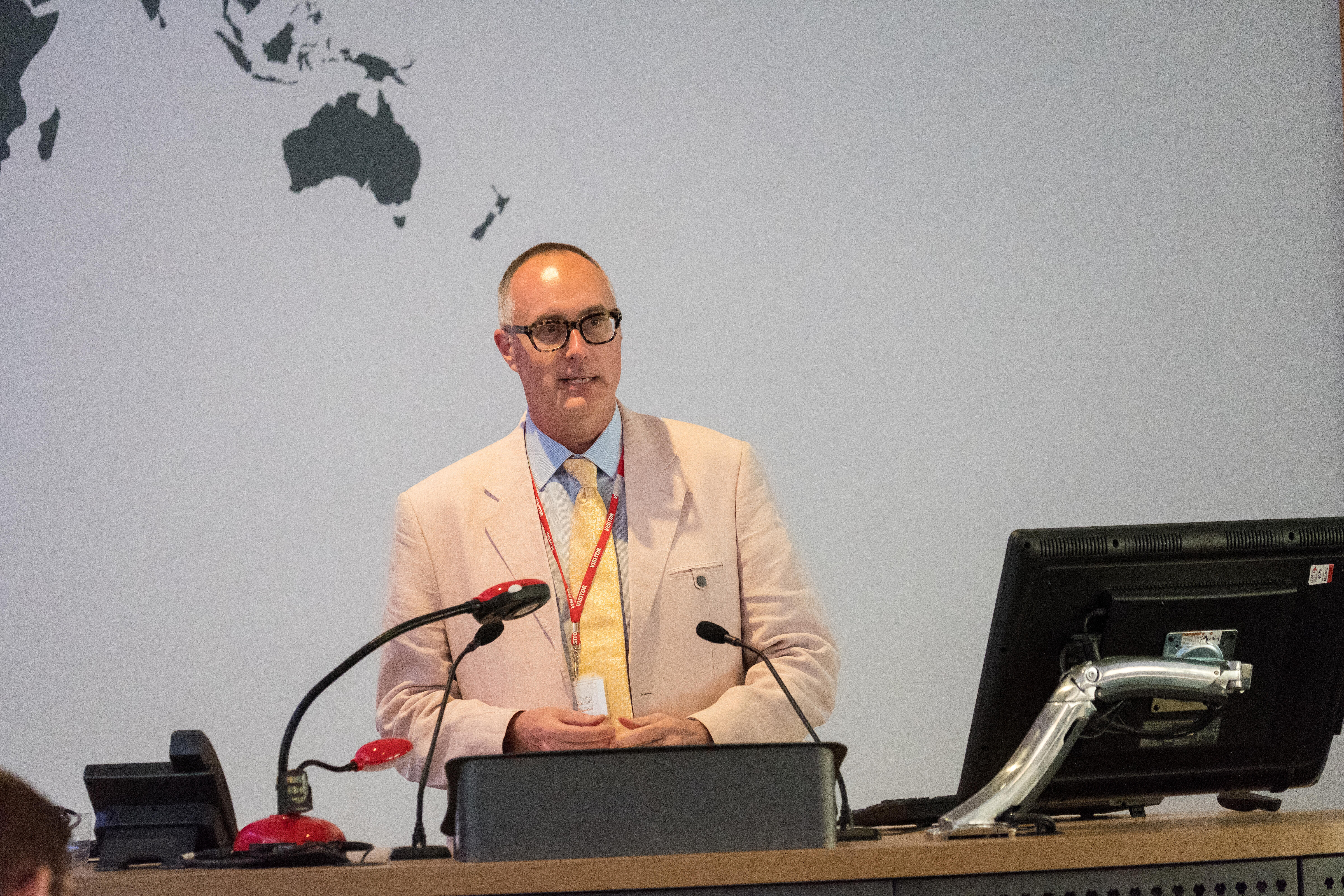
Fetish or fulcrum: the appeal of commodities in 21st-century global malaria efforts
Since 2001, billions of mosquito nets, treatment drugs and diagnostic tests have contributed to reducing the global burden of malaria and saving nearly 7 million lives.
Patrick Kachur reflects on the implementation science and advocacy efforts that helped ignite and accelerate this progress and consider the unique appeal that ‘life-saving commodities’ have for malaria control programs, their development partners, advocates, private markets and consumers, alike.
He explores some of the vulnerabilities of this commodity-based approach as well as opportunities to pivot toward investments that favor human knowledge, skills and institutions.
Biography
S. Patrick Kachur, MD, MPH, FACPM, FASTMH was born and raised on Mosquito Lake in northeast Ohio (USA) and is Chief of the Malaria Branch at the US Centers for Disease Control and Prevention (CDC).
He trained at Northeastern Ohio Universities College of Medicine, the University of Ilorin (Nigeria), Mary Imogene Bassett Hospital, Columbia University College of Physicians and Surgeons, and Johns Hopkins University, and completed the Epidemic Intelligence Service program at CDC.
Since 1995, Patrick’s research has focused on experimental and observational epidemiology and health systems studies to evaluate the effectiveness and equity of malaria interventions, with a particular interest in understanding how communities adapt and interpret malaria policies and programs.
He contributed to interdisciplinary research efforts establishing the efficacy of insecticide-treated nets in western Kenya and the feasibility and impact of routine use of artemisinin combination therapy (ACT) in Tanzania. From 2002 through 2006 he was based at Ifakara Health Institute, coordinating collaborative research and providing technical advice to the ministries of health for mainland Tanzania and Zanzibar-developing and implementing malaria grants for the Global Fund, and standing up the US President’s Malaria Initiative. He later established the Strategic and Applied Sciences Unit in the Malaria Branch at CDC.
He currently contributes to assessing new and revisited interventions for malaria control and elimination including vaccines, novel diagnostics, new vector control approaches and targeted strategies to reduce or eliminate transmission.
Dr Kachur is a frequent consultant on behalf of the World Health Organization, and is a member of its global Malaria Policy Advisory Committee. He has served as co-chair of the Roll Back Malaria Partnership’s Case Management Working Group and advised malaria and neglected tropical disease efforts on behalf of the Carter Center, Marathon Oil, US Agency for International Development, and World Bank. In 2016 he served as Acting/ Interim Principal Deputy Director at CDC’s Center for Global Health—coordinating CDC’s global activities in response to the explosive transmission of Zika virus in the western hemisphere.
About the Leverhulme Lecture
LSTM is proud to be one of a select number of institutions given the honor of hosting a prestigious Leverhulme Lecture series. The lecture was established by LSTM’s Professor David Molyneux and Viscount Leverhulme, thanks to the generous support from Lord Leverhulme’s Charitable Trust in 1997.